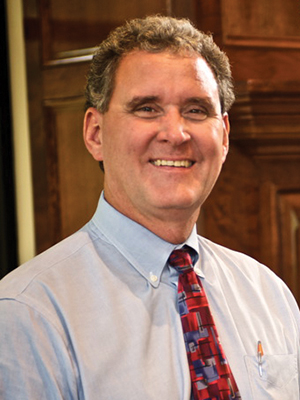 David Ammons
David AmmonsDavid Ammons is president of Retirement Living Associates, Inc. (RLA), a company which provides planning, development, marketing, and management services for new and existing retirement communities. He has worked in and with Senior Living Communities since his graduation from Wake Forest University in 1985.
As a longtime participant in my chosen profession of senior community living, managing, and developing, I am often intrigued by the lessons I learn that are much more personal than professional.
For example, as an industry participant, I understand the need to plan for seniors’ tendency in a retirement community to assemble in line about 20 minutes before the meal service begins. We often joke that it seems that no matter what time the dining room officially opens, residents will come 20 minutes ahead of that time.
We have moved dining hours earlier to accommodate what we thought was a desire to eat earlier, but again the queuing begins 20 minutes ahead of the scheduled opening. As I am sure you have guessed, we soon learned that the getting in line is a part of socializing, visiting, and sharing the news of the day.
The intriguing part of this simple example is that for the most part, the seniors standing in line would have gone out of their way to avoid a line in their younger years. They might even have passed a popular restaurant in search of one with a shorter wait time. So the lesson; it was not the waiting in line that was irksome. It was the fact that they stood and wasted the time spent waiting.
I am excited about a special focus I am working on for the next several issues of the Triangle Retirement Resource Guide. As a longtime industry provider, as well as a father, son, son-in-law, uncle, cousin, etc., I am fully aware that growing older is a complex process. I see many people making the “process” enjoyable while others age with some encouragement, and still others apparently don’t want to age at all. Regardless of one’s comfort level or willingness to engage in this essential process, there are professionals who are available to assist, supporting us in this new phenomenon, and if necessary, helping us recover from a rough transition to growing older.
Today the senior explosion has led to thousands of inventions, adaptations, and new marketing campaigns in response to this demographic. Many industries point to the Baby Boomer generation as the driving force behind car design, the maturing of Tony the Tiger (for Frosted Flakes) and a myriad of choices for hearing aids, diet aids, self-help books… the list is almost endless.
I hope you will find the next several articles informative as I invite three professionals with experience in gerontology to provide their perspective on what they have seen and learned. The three come from three different professions: religion (a chaplain), sociology (a Life Coach) and psychiatry (a Psychiatrist). Each will be asked to bring their own expertise and opinions to the same question: “What do you think is the most significant aspect of preparing for and coping with aging?”
Each writer recognizes that aging is very much a relative term. A middle schooler thinks aging is going to high school while a person in mid-life may think aging involves retiring. I have carefully selected three professionals who have insight and understanding far beyond their chosen vocation.

